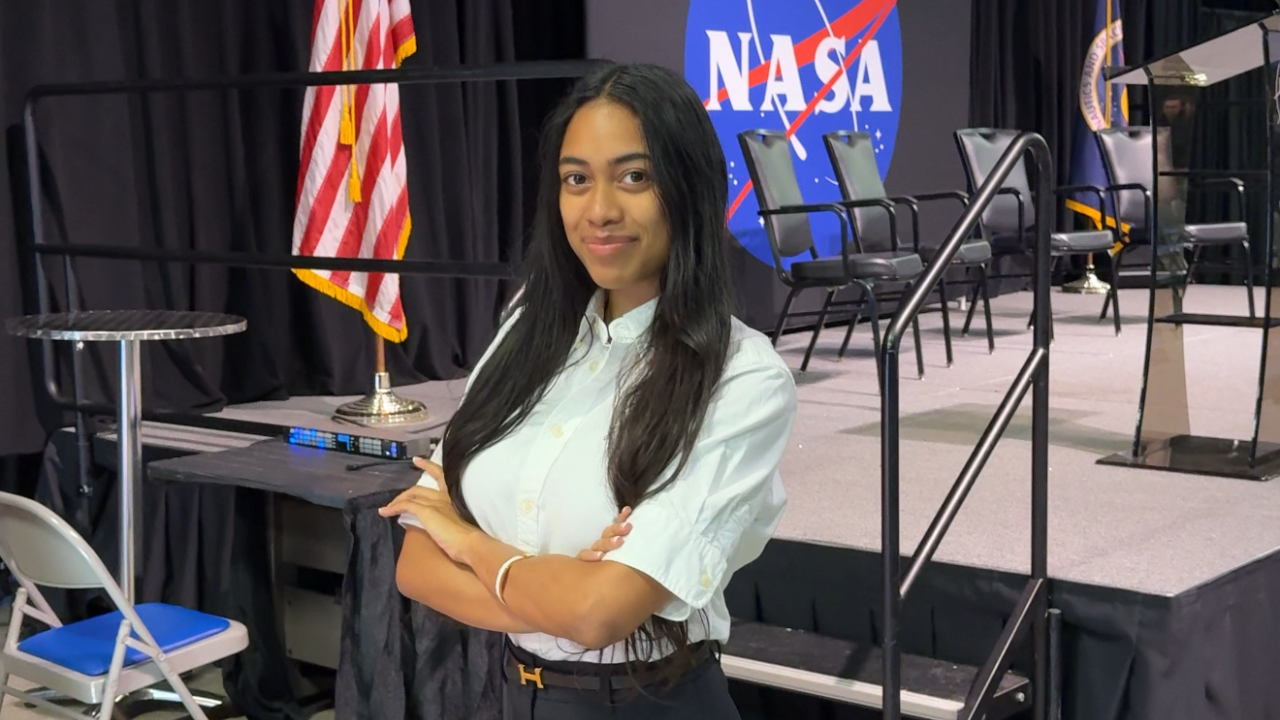Student Stories
Electrical Engineering Internship Story | NASA Marshall Space Flight Center

Catherine Franco
Electrical Engineering
What company did you work with and where were they located?
I interned twice from the spring through summer at NASA Marshall Space Flight Center, located in Huntsville, Alabama.
How did you identify and apply for this position? Are there any specific resources you used to find the opportunity (i.e., Handshake, career fairs, other recruitment events)?
I applied through NASA STEM Gateway, which posts internship opportunities across NASA centers. However, it's important to consider a NASA internship like a 10-16 week interview! During my time there, there were plenty of facilities to explore and networking opportunities, landing me internships in multiple departments and securing my second internship with NASA Marshall.
What was the application process like?
The application was competitive but straightforward. You’re expected to demonstrate both technical competence and curiosity, but NASA is also looking for students who are adaptable, eager to grow, and ESPECIALLY passionate about NASA and their mission. It wasn’t about being perfect, it was about showing potential.
Tell us about your internship experience. What types of tasks and projects did you engage in? Was there a particular project or part of the experience you learned the most from?
During my 8 months as a propulsion engineer intern for the HLS Program & Artemis Campaign, I was tasked to innovate 2 in-house software tools from scratch, built to automate and optimize the liquid rocket injector design process. These tools accelerate faceplate design, flow modeling, and iteration cycles, which enabled us to additively manufacture multiple permeable-based injectors, now slated for hot-fire testing this fall. Seeing hardware produced with the very tools I created, and contribute to real propulsion testing, was one of the most rewarding and hands-on experiences I’ve had! My most valuable lesson at NASA was learning to think like an engineer, not just a student.
In what ways did this internship help you prepare for your next destination after Auburn?
This internship gave me the confidence to step into unfamiliar territory and still deliver meaningful results, a skill I’ll carry into every future project. It also opened the door for me for research in Auburn’s Advanced Flow Diagnostics Laboratory (AFDL), where my background in experimental systems, programming, and data processing is directly relevant to their imaging and fluid dynamics research. Transferring into Auburn, I feel prepared not only to continue in aerospace and research but also to take on challenges that push me beyond my original area of study.
In what ways did your coursework or other experiences at Auburn prepare you for your internships? Are there specific topics or skills you learned from classes that you put into practice on the job
I think the most pivotal decisions I made, we're participating in programs outside of class, like NASA L’SPACE and NASA NCAS. They built my foundation in skills that directly carried over into my NASA internships. And while technical coursework definitely helps, honestly the biggest factor was developing the ability to ask the right questions, communicate ideas effectively, and approach problems with the mindset of an engineer.
Do you have any advice for other students looking for internships like yours?
Build your network, take advantage of opportunities like research programs, clubs/orgs, or student competitions, and show initiative, that’s often what opens the door. Don’t be afraid to apply even if you feel underqualified. NASA and other organizations value potential, curiosity, and willingness to learn just as much as experience. Lastly, dream big.

